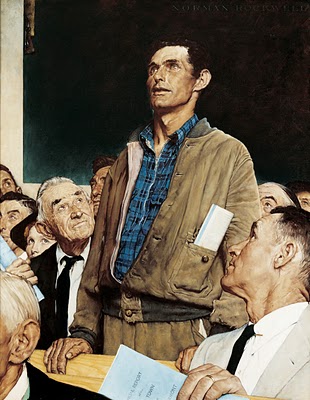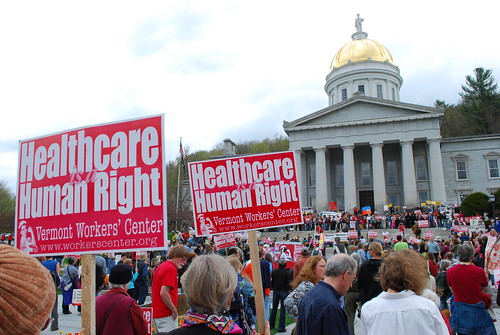Bill of Rights


|
First Amendment Freedom of religion:
Freedom of speech and of the press. Right to gather in a peaceful way. Right to appeal to the government. These are all about democracy -- participation in one's own governance. |
Second Amendment People have the right to keep and bear arms.
|
|
Third Amendment The government cannot force people to keep soldiers in their homes, as the British did.
|
Fourth - Eighth Amendments describe due process of law -- the limits on the government's power to deny rights. Fourth Amendment The government cannot "unreasonably" search people or their property. |
|
Fifth Amendment
|
Sixth Amendment
|
|
Seventh Amendment
|
Eighth Amendment
|
|
Ninth Amendment The Ninth Amendment says that people have rights other than those specifically listed in the previous amendments. |
Tenth Amendment The Tenth Amendment is not about individual rights, but is about sovereign power. in response to the critics of the constitution, the tenth amendment assures that powers not granted to the federal government are reserved to the states, or the people. |


